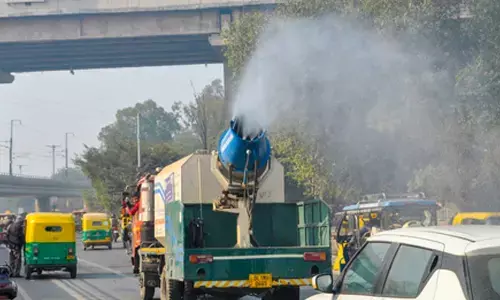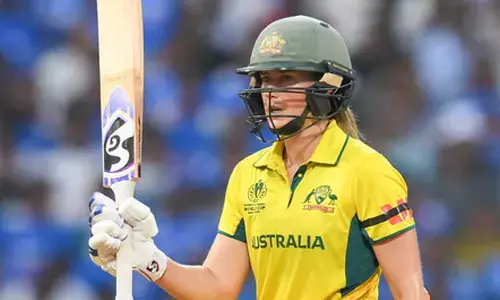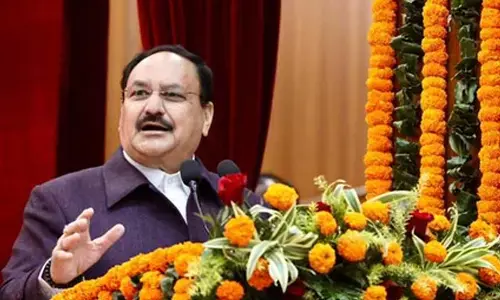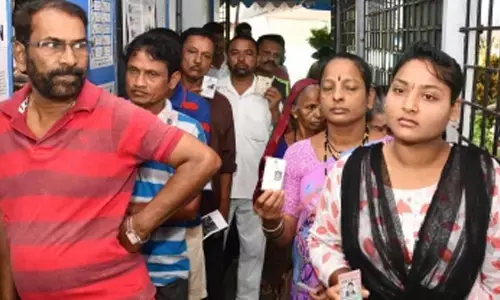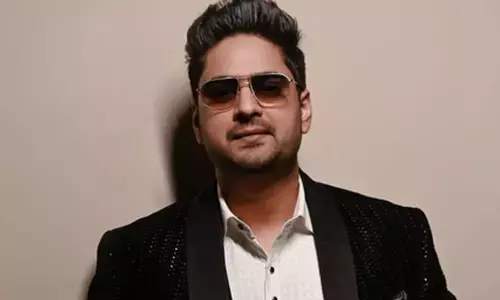Shift focus from systems to mind-sets
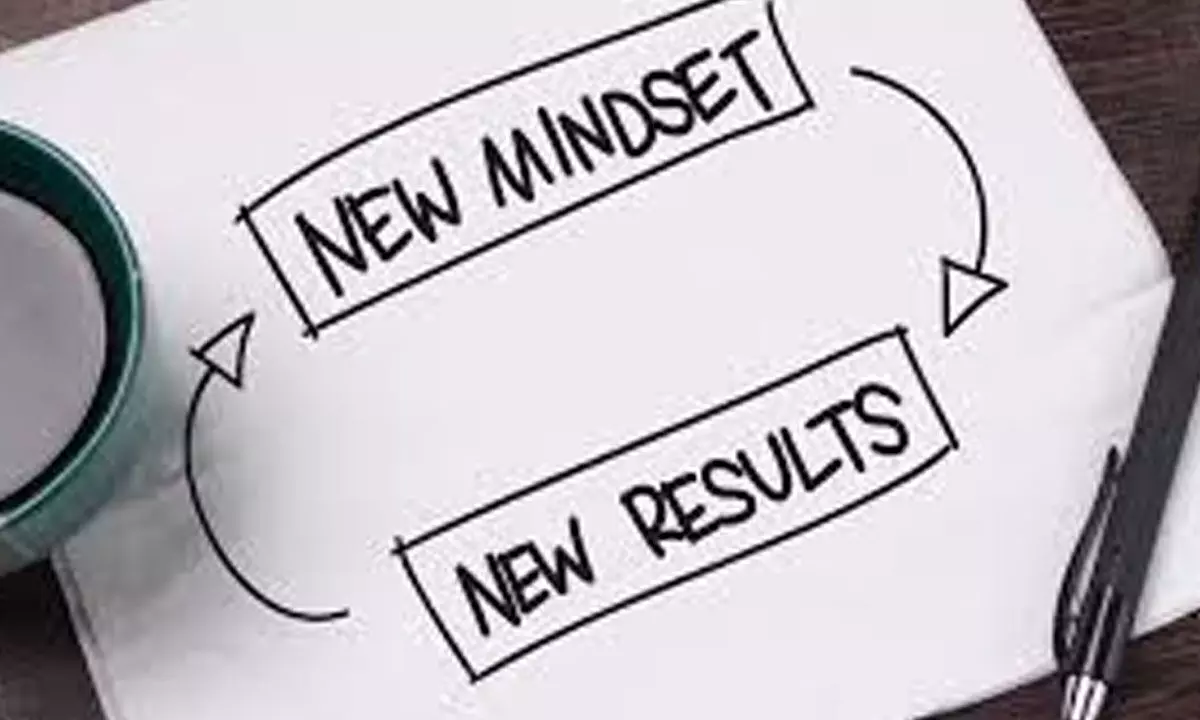
Shift focus from systems to mind-sets
The Election Commission (EC) has come under intense scrutiny over the last few weeks for its ‘inability’ to take swift action against those violating the Model Code of Conduct (MCC).
The Election Commission (EC) has come under intense scrutiny over the last few weeks for its 'inability' to take swift action against those violating the Model Code of Conduct (MCC).
It is felt that there are certain issues that need to be examined and some changes be made in the rules for appointment of Election Commissioners and the Chief Election Commissioner (CEC) so that CEC would be able to take on the Prime Minister. Well, when one sees how the Union government appointed an EC within 24 hours of his voluntary retirement, one would certainly feel that there is a need for an effective procedure. One can also not accept the Centre's argument that the court cannot examine such aspects.
There are no two opinions that the EC and the State Election Commissioners (SECs) should be all-powerful in the smooth conduct of elections. Just as the apex court felt that CEC should be able to take on PM, the SEC should also be a person who would be able to take on the Chief Minister.
There is also a suggestion that there should be a collegium to select the ECs and the Chief Justice of India should be part of it. Well this is an issue that needs to be debated. But what is more important is a thorough debate on the conduct of the politicians. During every election, we see the Association for Democratic Reforms come up with statistics about the percentage of candidates with criminal records. There is no single party which can claim that it does not have people with criminal background. Only the percentage differs.
Nearly half of the Lok Sabha members elected in 2019 have criminal charges against them, which is a 26 per cent increase over 2014. Of the 539 winning candidates analysed by the ADR, as many as 233 MPs (43%) have criminal charges.
Every candidate who contests election submits accounts regarding poll expenditure. But then the actual amount spent is many more times high. People blame EC saying it has failed to contain money power. But no one blames the politicians or political parties who pay anything from Rs 2,000 to Rs 6,000 and distribute free liquor as well as other gifts.
Is it not the prime responsibility of political parties to have high moral values and be prudent in expenditure? How did stalwarts win elections in the past spending just Rs 2 lakh? Does it mean the EC was effective then and failed now? No, those days, politicians did not resort to use of buying of votes. In fact, we had politicians who sold their property for the sake of nation. But now the situation is different.
EC certainly is not toothless but then in any wing of administration implementation of rules depends on people who are given the responsibility of implementing them. Can a collegium assess this quality of an individual? If so, how?
Some people say that President of India is more like a rubber stamp and that the Speakers of Lok Sabha or Assemblies are always soft towards ruling party. Well, should we have some collegium kind of institution to select them? Can such selection assure that the person so selected would be independent?
Some learned judges opine that the since ECs are appointed by the government of the day, they feel beholden to the government or the government might feel that they should be beholden and hence the collegium can solve this problem.
Here we need to refresh our memory. T N Seshan was a bureaucrat and was appointed as the CEC. It was felt that since he was appointed during the period when Chandrasekhar was the Prime Minister supported by Congress party and since Seshan was considered to be close to Indira Gandhi, he would be soft towards the Congress party and the government supported by it.
But he proved otherwise, and he is remembered even today not only by the Supreme Court judges but even by the common man. That is why the Supreme Court on November 22 observed that it wants a CEC of strong character like Seshan.
A five-judge Constitution bench, headed by Justice K M Joseph, said its endeavour was to put a system in place so the "best man" is selected as the CEC. The thought is laudable. But then "best man" is also perception-based. As I mentioned earlier, the general perception was Seshan would be pro-government, but he proved to be a tough nut. So how can one decide who is the best person?
In the mid-1990s, Seshan became an icon of the middle class. He was considered a crusader against corruption and electoral malpractices. His work was recognised internationally and he was given the Ramon Magsaysay Award for 1996. He was ruthless and unforgiving when it came to the electoral staff across the country about electoral discipline… And not just that, he was equally strict with politicians — he wouldn't listen to them.
In 1994, in a move that raised many eyebrows in political circles, he advised then Prime Minister P V Narasimha Rao to remove two sitting ministers — welfare minister Sitaram Kesari and food minister Kalpnath Rai — from the cabinet for reportedly influencing voters. Some argue that Seshan happens occasionally. This means that required rules are there and what is required is a person who is no nonsensical one and can act tough. This is true regarding every wing of administration including judiciary.
Some argue that ECs are influenced by the government of the day. Even if we agree with this argument, it again makes it clear that what we need first is a system to select the best of the politicians. If changes are to be brought, they should be comprehensive and not confined to powers of EC alone. There was a good suggestion by former CJI N V Ramana that agencies like ED, CBI, IT etc., should be taken out from the control of ministries and should be brought under one umbrella.
In fact, the apex court would go down in the history of India if it can discuss at length the modalities of how to bring comprehensive changes starting with the quality of the politicians to electoral reforms and selection of ECs without affecting the independence of the ECI.
The learned judges should suggest how to ensure better selection of leaders so that people can select best of the best leaders not best among available leaders.
Unfortunately, no one talks about politicians. Aya Ram Gaya Rams, liquor scam, Poachgate incidents etc., have become the order of the day. Who is responsible for that? How to bring about change among the politicians? We have seen even if cases are filed against any elected member alleging that he had indulged in electoral malpractices, the judgement comes after his term ends or when it is about to end. Do we not require changes in this regard?
Seshan enforced the authority of the EC as per its powers laid out in the Constitution. He changed the process of conducting elections in the nation and introduced a list of 150 malpractices during elections, including distribution of liquor, bribing voters, ban on writing on walls, use of religion in election speeches etc. He introduced voter ID cards, the Model Code of Conduct, and enforced a limit to poll expenses. But now voters are bribed and poll expenditure has become limitless.
Unless officials, Central or State, act independently, things will not change. We have seen many officials who say that they will touch the feet of Chief Ministers even 100 times. So where should the change begin from? There are many occasions when the leaders turn into "embodiment of arrogance." Some say such constitutional appointments in many countries are made by either a collegium or even by parliamentary committees endorsed by Parliament. Well when the basic issue is how to improve the quality of politicians first, it may not be proper to involve parliamentary committees. We have some political parties who fix a target of winning all the Assembly seats. If there are 175, they want to win all 175 and it is such honourable members who take oath on constitution which says India is a democratic country.
The real problem lies not with system but basically with our leaders. I fully agree with the learned Justice K M Joseph that we need a man as EC who can take on PM.
We have seen leaders like Indira Gandhi who was ruthless when it came to administration. We have seen Vishwanath Pratap Singh who was firm on his commitment towards implementation of Mandal Commission report. We have seen Prime ministers like P V Narasimha Rao who was unstoppable in implementing economic reforms which ushered in a new era in Indian economic system. We have also seen Prime Ministers who were docile.
Similarly, there were presiding officers of Lok Sabha and Assembly who could stand up and direct the Prime Minister or the Chief Minister to follow the rules and there are Speakers who were again docile. The same is the case with the judiciary.
Some legal luminaries felt that good practice sometimes is better than a law. When we pass a law, we are unable to anticipate every contingency. The moment you make a law, some comma or some phrase somewhere will be interpreted this way or that way and it will end up in the courts. Suppose the model code of conduct becomes law, it may not be possible for EC to implement it as every action will end up in litigation.
There is any number of stern laws but why is it that corruption is high at some places and not so high in others? When NTR was the Chief Minister people used to fear to accept bribe but why is it that the situation was not the same later.
It all depends on the political executive. That is why it is said 'Yatha Raja Tatha Praja.' So, reforms should begin with having the best of politicians. But how? That is what all the pillars of Constitution need to discuss.


